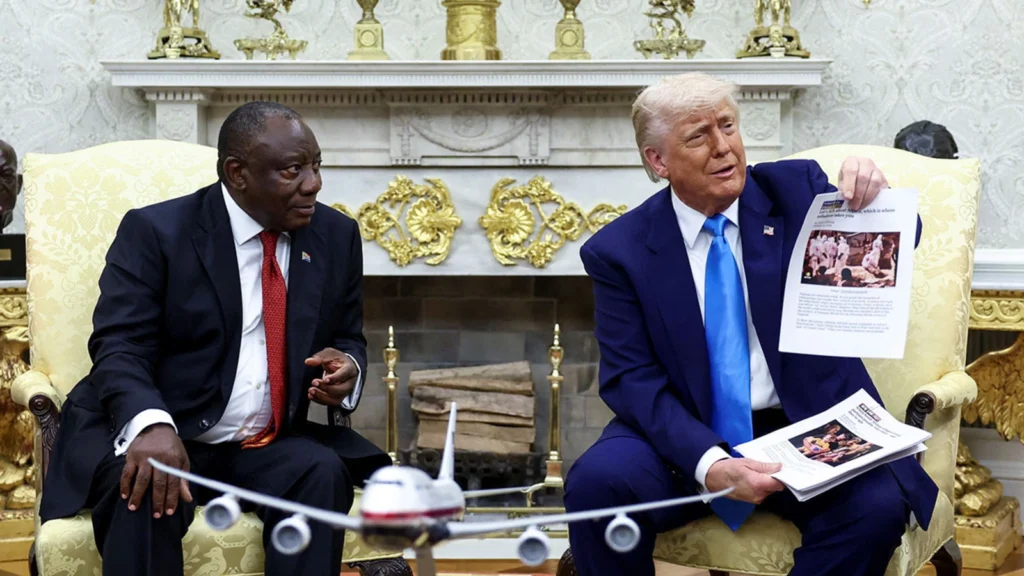Ramaphosa Faces Challenges in U.S. Relations as Tensions Escalate
Date: 16 July 2025
The relationship between South Africa and the United States appears to be deteriorating further, as the current U.S. administration treats South Africa much like a pariah state. Recent developments indicate that officials from the Trump administration are actively sidelining the country from diplomatic exchanges, imposing potentially crippling tariffs that could exacerbate South Africa’s existing economic crisis.
Significant Diplomatic Setbacks
A notable indication of the strained relations surfaced with the Democratic Alliance (DA), the second-largest party in South Africa’s ruling coalition, revealing that President Cyril Ramaphosa’s special envoy, Mcebisi Jonas, was denied a diplomatic visa in May. The U.S. government has since refused to acknowledge him as a legitimate diplomatic representative, an appointment made by Ramaphosa to mend ties with the U.S.
Despite the Ramaphosa administration’s denial of DA’s claims, the U.S. State Department has remained tight-lipped, citing confidentiality regarding visa records. Jonas, a well-respected figure with a background as a former deputy finance minister and current chairman of MTN, was expected to play a pivotal role in improving relations after the previous cutbacks in U.S. aid and heightened accusations against South Africa.
Escalating Tensions Over Policy
Relations have cooled significantly since the Trump administration accused South Africa of anti-white policies and condemned the government’s support for a genocide case against Israel. Political analysts suggest that Jonas’s planned diplomatic efforts may have hit a wall, given the current U.S. administration’s tactics of isolating South Africa diplomatically.
Additionally, U.S. Treasury Secretary Scott Bessent’s absence from a recent G20 finance ministers’ meeting hosted in South Africa exemplifies the growing estrangement. Bessent has previously opted for lower-level representations in meetings, further highlighting the friction with Ramaphosa’s government.
Strained Dialogue and Missed Opportunities
Despite Ramaphosa’s optimism following a meeting with Trump, he was confronted with disparaging comments and misleading representations regarding the so-called genocide of white South Africans. This recurring narrative from Trump continues to overshadow any diplomatic overtures from South Africa.
In an unusual move, Ramaphosa has chosen to leave the envoy position unfilled, which many interpret as a recognition of the challenges posed by the current political climate, rather than a show of confidence in diplomatic abilities.
Potential Economic Fallout
With Trump threatening a 30% tariff on South African goods, the economic implications could be devastating for the nation. The central bank estimates that such measures could result in the loss of approximately 100,000 jobs in a country already grappling with an unemployment rate of 32.9%. The agricultural sector would be particularly hard hit, despite Trump’s claim of support for South African farmers.
| Event | Date | Impact |
|---|---|---|
| Trump cuts off aid | May 2025 | Increased tension and financial strain |
| Scott Bessent skips G20 | July 2025 | Sidelining of South African leadership |
| Potential tariffs imposed | August 2025 | Estimated 100,000 job losses, severe economic damage |
As South Africa finds itself increasingly at odds with the U.S. under Trump’s administration, experts believe that the nation may need to strengthen its ties with alternative partners while enduring the political and economic repercussions of these strained relations.


